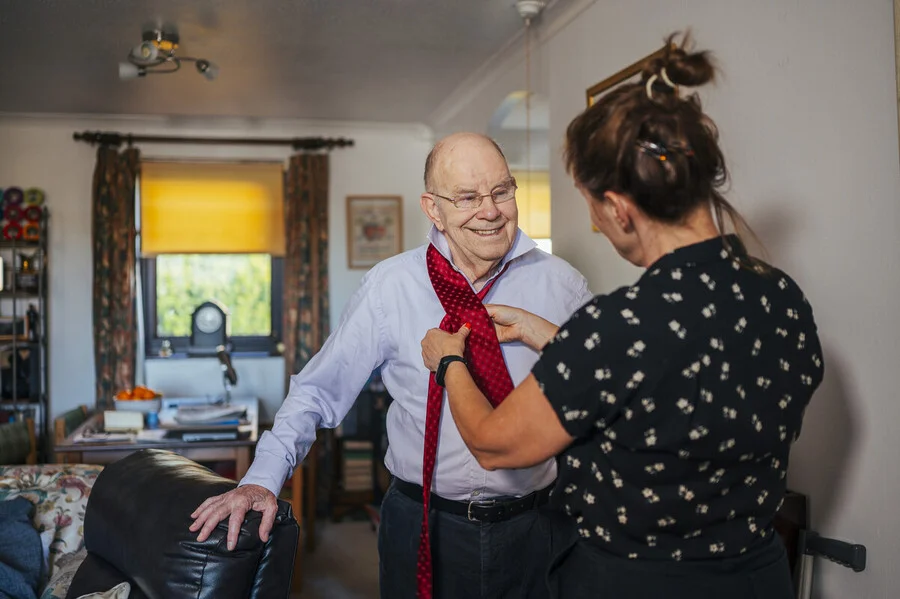Home Health Aide vs. Caregiver: What’s the Difference?
When you need someone to help take care of a family member who can’t do everything alone anymore, you might hear about home health aides and caregivers. But what’s the real difference between them? In this blog post, I’ll break down the basics for you, so you can make the best choice for your loved one.
Home Health Aide vs. Caregiver: What’s the Difference?

Let’s start with the basics. A home health aide and a caregiver both help people who need assistance, but they do it in slightly different ways.
A home health aide usually has more formal training. They might help with things like checking vital signs, changing bandages, or giving medicine. They often work under the supervision of a nurse or other medical professional.
On the other hand, a caregiver is usually someone who helps with everyday tasks like bathing, dressing, cooking, and cleaning. They might not have as much formal training as a home health aide, but they can still provide valuable support and companionship.
So, the big difference is that a home health aide tends to focus more on medical tasks, while a caregiver focuses more on everyday activities.
Are there any similarities?
Even though home health aides and caregivers have different roles, they both have one important thing in common: they’re there to help you and your loved one.
Both home health aides and caregivers can provide valuable support and companionship. They can help your loved one feel more comfortable and independent at home. And they can give you peace of mind, knowing that someone is there to look out for them when you can’t be.
Who to hire for a family member with dementia?
If your family member has dementia, you might need extra help caring for them. Both home health aides and caregivers can provide valuable support for someone with dementia, but there are a few things to consider when deciding who to hire.
A home health aide might be a better choice if your family member needs help with medical tasks, like taking medicine or managing symptoms. They can also work closely with your loved one’s doctor to make sure they’re getting the care they need.
On the other hand, a caregiver might be a better choice if your family member needs more help with everyday tasks, like bathing, dressing, and eating. They can provide consistent, one-on-one support and companionship, which can be especially important for someone with dementia.
Ultimately, the best choice depends on your loved one’s specific needs and preferences. You might even decide to hire both a home health aide and a caregiver to make sure all of their needs are met.
Conclusion
When it comes to caring for a loved one who needs extra help, both home health aides and caregivers can provide valuable support and companionship. A home health aide tends to focus more on medical tasks, while a caregiver focuses more on everyday activities. But no matter who you choose, the most important thing is finding someone who can give your loved one the care and attention they deserve.

